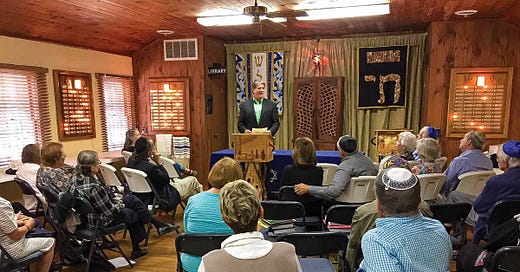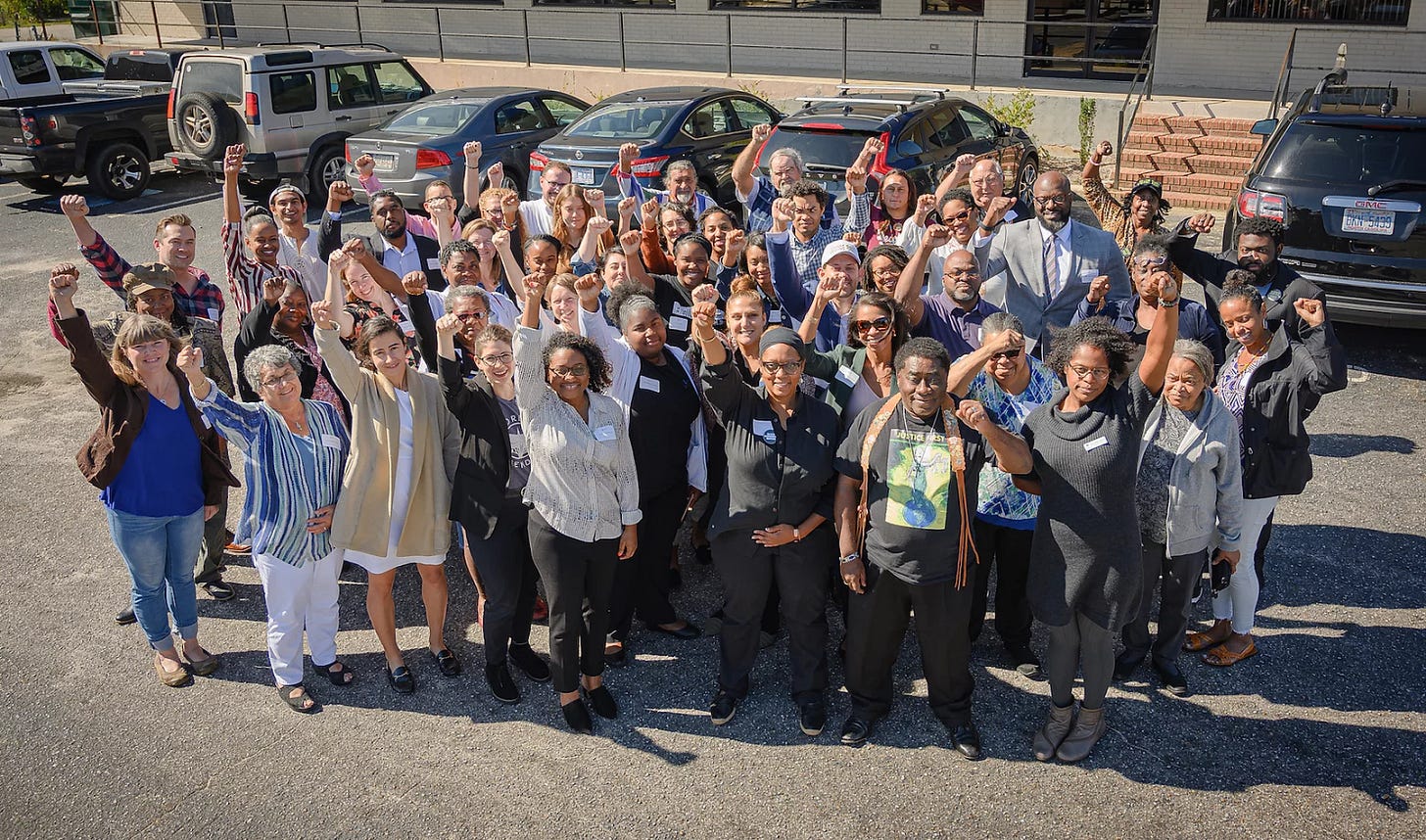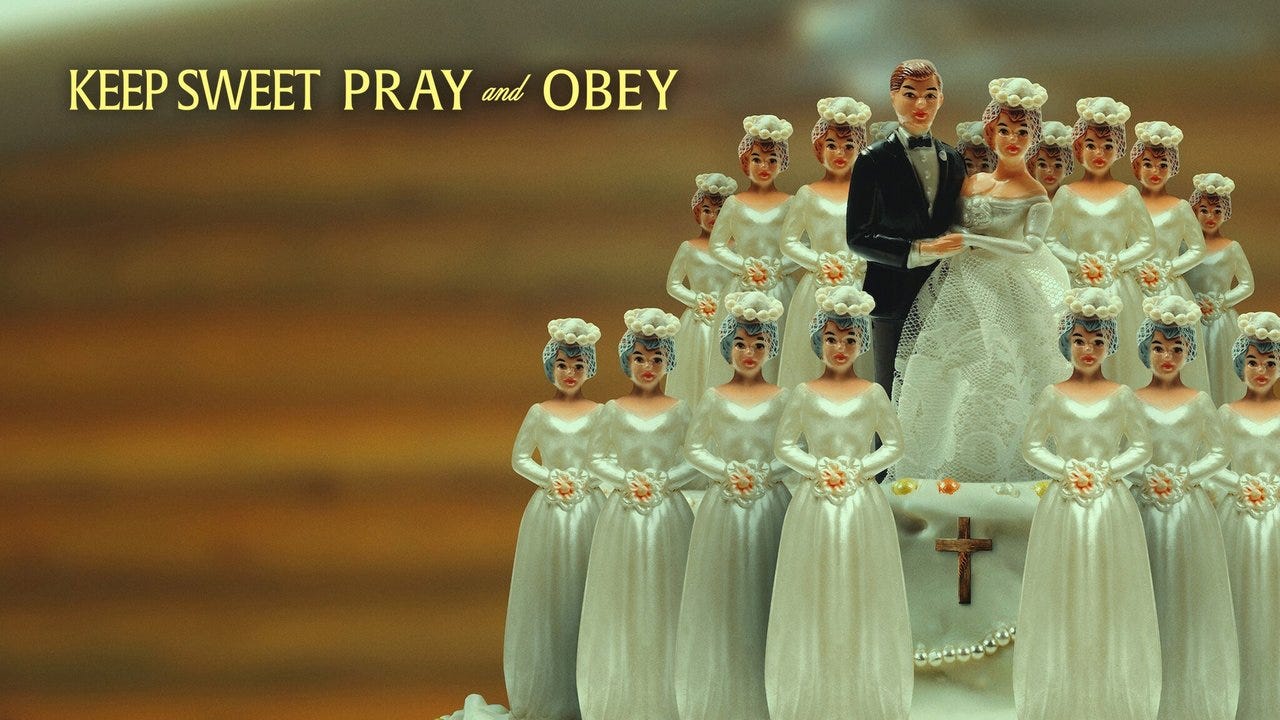Rising antisemitism in North Carolina
Welcome to the 10th edition of North Carolina Religion Roundup: Antisemitism, faith & climate, and more.
Happy Friday! Thanks for reading the 10th edition of North Carolina Religion Roundup, a newsletter that highlights major religion news and trends in the Triangle and greater NC. I’m a reporter covering community colleges, postsecondary access, and faith at EducationNC, and a M.Div. student at Duke Divinity School. (If you’re interested, you can read more about the newsletter and why I started it here.)
As always, I’d love any thoughts or feedback regarding parts of the roundup you particularly like, and/or anything you’d like to see in the future. Plus, I’d love it if you’d share this newsletter with a friend.
Thanks for following along. Happy reading!
This week:
In Story to Follow, I take a look at the rise of antisemitism in the state.
In Deep Dive, I highlight how religious leaders are working together to call for climate protections.
And In a Nutshell, I highlight some NC religion stories to keep an eye on.
In What I’m Reading, I introduce you to two religion newsletters I’m a big fan of, as well as to a documentary I couldn’t stop watching.
Story to Follow: Antisemitism in NC
In April, swastikas were drawn on the campus of Queens University of Charlotte. The vandalism is part of a trend of rising antisemitic incidents across North Carolina, the Charlotte Observer reported.
Antisemitic incidents in the state more than doubled from 2020 to 2021, according to the Anti-Defamation League (ADL) — with a 131% increase in antisemitic incidents over the past year. (There were 30 incidents in 2020; 13 in 2020.) In 2021, UNC Chapel Hill was vandalized with racial slurs and antisemitic symbols, which the ADL said is part of trend of similar incidents at colleges and universities nationwide.
There were 2,717 national incidents of assault, harassment and vandalism reported to the ADL in 2021 — the highest number since tracking started in 1979.
Tair Giudice, the Jewish Federation of Greater Charlotte’s chief impact officer, told the Observer the number of reports the federation received has tripled in the last year. Giudice said most of the reports are vandalism and harassment, but there are also death threats reported.
Meredith R. Weisel, regional director of the ADL in Washington, D.C., said the increase in antisemitic acts is the largest in 40 years. The uptick is happening for a variety of reason across the nation, she said, pointing to conspiracy theories and COVID-19 as two factors which have also increased attacks against AAPI, LGBTQ+ and Black communities.
“We need our policymakers to put in place laws and tools and trainings to prevent hate crimes from even happening and when they do how to respond appropriately, understanding it has a ripple effect to hold throughout the whole community,” Weisel told the Observer.
Photo from Smoky Mountain News
In Western NC, the Mountain Synagogue in Franklin is a community of Jews practicing their faith in the All Saints Episcopal Church of Franklin. It’s one of the few synagogues in the western part of the state. As with most Jewish communities, safety is top priority, reported the Smoky Mountain News. The synagogue has 150 members, and sees a “substantial influx” of practitioners in the summer months.
Harvey Morse, President of the Board of Directors for Mountain Synagogue, said many new members are adults who are reconnecting with Judaism. Morse cited the recent rise in semitism as one reason for that trend. “They just wanna be able to have a voice in what is happening rather than just being a passive member,” Morse said. “They wanna be proud of their religion and their heritage. So they take the extra steps to learn what they need to do religiously and ritually to become Bar or Bat Mitzvahed.”
A synagogue in Asheville was vandalized with flyers saying that Jews were responsible for COVID-19, Morse said. He is a part of the Western North Carolina Jewish Security Task Force, and on the security team at his synagogue. “For security reasons, the men were reluctant to share too much information regarding the task force,” the article said. “Our role is just to make sure that people can pray in safety and in a secure environment and not have to worry about the outside when they’re there to pray to God,” said one task force member.
One more good read, from the Jewish Journal: L.A. Native Brings Hope to Patients as a North Carolina Chaplain. Jonah Sanderson, a chaplain in Gastonia, is the only Jewish employee at the small hospital he works at. He wants to create a community that tackles the issues that face Jews in the South, including antisemitism. “Every way is a way to God as long as that way is non-violent and inclusive,” he said. “I often tell my patients, ‘One more commandment, one more good deed could tip the scales to the world of good. So, what we really want is for you to get better, so that you can get out there and tip the scales to bring redemption.’”
Deep Dive: Faith and climate
Faith and climate leaders convened in Charlotte this week for the Southeast Climate and Energy Network (SCEN) Convening, in partnership with the US Climate Action Network. “SCEN believes that local organizations are best positioned to bring about equitable and sustainable energy systems across the Southeast when they share a common vision and collaborate with a broad range of partners,” SCEN’s website says. “Our main goal as an organization is to become a powerful, inclusive, diverse and interconnected Southeastern climate movement that strengthens capability and enables organizations to maximize impacts at a local and regional level, thereby building healthy, resilient and vibrant communities.”
Rev. Michael Malcom, executive director of the Birmingham, Alabama-based People's Justice Council, told Public News Service that Black, Brown and other historically vulnerable communities are disproportionately experiencing damage from climate disasters. "All of us in the South, I would say, are aware of the effects of climate change," Malcom said. "Because we are the ones that are being hit — I would say the hardest — particularly in the gulf region."
A photograph from a 2019 convening in Florence, SC. Courtesy of SCEN
Susannah Tuttle, director of the North Carolina Council of Churches Eco-Justice Connection Program, told Public News Service the U.S. should pay its fair share regarding climate related loss. Malcolm said religious groups should educate their communities about the impact of climate change.
"It is an absolute moral imperative to end investment in climate destruction," said Tuttle. "All people of faith and spirituality with a role in the financial system have a responsibility to create action immediately, to put the world on a path to a just and sustainable future."
Nationally, 60% of Christians and 79% of other non-Christian religious Americans (Buddhist, Hindu, Jewish and Muslim, etc.) believe passing legislation to address climate change and its effects should be an important priority for Congress, according to data published by Morning Consult and Politico last year.
In a Nutshell:
Last week, President Biden announced his intent to appoint NC resident Stephen Schneck to the United States Commission on International Religious Freedom. The United States Commission on International Religious Freedom is an independent, bipartisan U.S. federal government commission created by the 1998 International Religious Freedom Act, the announcement says. Schneck currently serves on the governing boards of Catholic Climate Covenant, an environmental justice advocacy organization, and of Catholic Mobilizing Network, a Catholic organization working to end the death penalty and advance restorative justice. He was a member of the White House Advisory Council for Faith-Based and Neighborhood Partnership under President Obama.
‘You wear out’: How chronic illness grounds and inspires William Barber’s activism, from Religion News Service. Rev. Barber’s first time sharing the details of his health struggles with RNS was published June 18, during the Mass Poor People’s and Low Wage Workers’ Assembly and Moral March on Washington. (Read more about the North Carolina Poor People’s Campaign June 18 march here.) From RNS: “Barber uses his own health issues, and his adequate health care access, to talk about how many lack it. ‘I have certain pains, but I can’t imagine what people who have pain and then, on top of that, have to deal with low wealth and lack of health care.’”
Eminent Urdu scholar Gopi Chand Narang died last week at age 91, the Hindu reported, where he was living with his son in Charlotte. From the obituary: “Prof. Narang devoted his entire life in extricating Urdu from the confines of orthodoxy and communalisation. He would always say that language will adjust and survive, like a river, it keeps changing its bank.”
Jewish for Good, a Durham nonprofit at the Levin JCC, is offering sensory-friendly swims, June 26, July 24, and Aug. 28, 6-8 p.m. The program is for members and guests with autism and other sensory needs and their families, with low capacity, no spray features, and lifeguard whistles used in emergencies only. Pre-registration is required.
New plan could save historic Black church in Charlotte from demolition, from the Charlotte Observer. Charlotte-Mecklenburg Historic Landmarks Commission said Mount Carmel Baptist Church, located by Johnson C. Smith University, had “extreme deterioration” inside, including to the roof and flooring. Last week, the commission voted to request up to $850,000 from Mecklenburg County commissioners to stabilize the building.
Also from the Charlotte Observer: Court records, news reports point to at least four more Baptist ministers linked to sexual abuse in NC. Check out my last roundup for more on the scandal and sex abuse list.
Dozens of Durham residents filled the pews of Monument of Faith Church in Durham’s historic Hayti neighborhood earlier this month to confront city council over DHA’s plans for Fayette Place in Hayti, the N&O reported. The majority of the speakers addressed the urban renewal project that destroyed hundreds of Black-owned businesses and homes in Hayti for the construction of the Durham Freeway in the 1960s and ‘70s.
Chatham churches host vigil, urge action against gun violence, from the News + Record. “One does not pray in lieu of summoning political courage,” one pastor said. “But rather in preparation for doing so. Your participation is needed.”
Former Triad assistant principal, pastor sentenced to 4-5 years for student sex crimes, by WNCT. On July 11, 2019, former assistant principal at Union Grove Christian School and pastor Jason Keller was arrested for a series of sex crimes that he committed nearly a decade earlier from 2008 to 2009. Last week, he was sentence to five consecutive 10-12 month sentences in relation to multiple felony counts of sexual activity with a student.
Christian school coach accused of taking ‘indecent liberties’ with student, NC cops say, from the News & Observer. Officers arrested Marissa Faye Carter, 23, after they received information about her alleged involvement with a student at Burlington Christian Academy, the Burlington Police Department announced in a news release Monday.
~What I’m reading ~
This Week in Religion — an email newsletter from the Global Religion Journalism Initiative (a collaboration among the Religion News Service, The Associated Press and The Conversation U.S.) highlights a wide array of global religion stories. Including: Salvadoran women jailed for abortions in a heavily Catholic country, United Arab Emirates banning Pixar’s “Lightyear” from showing because of a kiss between two female characters, and photos from the week.
Weekend Plug-in, by Religion Unplugged Columnist Bobby Ross Jr., is a weekly newsletter that features analysis, fact checking and top headlines from the world of faith. It’s one of my favorite newsletters!
I also recently watched the four-part Netflix documentary, Keep Sweet: Pray and Obey. The series is about the polygamous Fundamentalist Church of Jesus Christ of Latter-Day Saints, a radical offshoot of mainstream Mormonism, and its current leader Warren S. Jeffs. It’s troubling, fascinating, and hard to watch at the same time. The documentary gets at how deeply a person’s religious beliefs can form them without belittling or flattening the centered theology.
That's it for this week's edition of North Carolina Religion Roundup. Thanks for reading. Until next time. And in the meantime, I gladly welcome any tips, feedback or news you think I haven’t included but should in future editions. — Hannah






